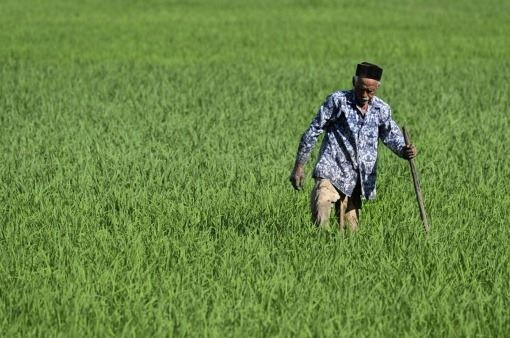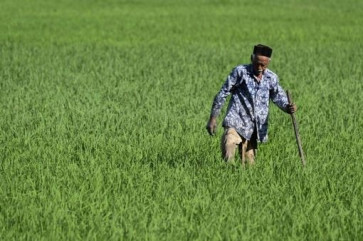Popular Reads
Top Results
Can't find what you're looking for?
View all search resultsPopular Reads
Top Results
Can't find what you're looking for?
View all search resultsAnalysis: Prabowo’s promise to achieve food self-sufficiency amid import reliance
Change text size
Gift Premium Articles
to Anyone
P
resident Prabowo Subianto has expressed his commitment to prioritizing food self-sufficiency for Indonesia, setting a five-year deadline to achieve this objective. However, Indonesia still faces many issues with its food supply as the country relies heavily on food imports to meet the needs of the hour, a challenge that many previous presidents have attempted to address to no avail.
In his inaugural speech on Oct. 20, Prabowo claimed that Indonesia should reach food self-sufficiency by 2029. To expedite the process, Prabowo has appointed former trade minister Zulkifi Hasan as coordinating food minister and Agriculture Minister Andi Amran Sulaiman. A collaboration between several ministries will take place, specifically with the State-Owned Enterprises (SOE) Ministry. Amran, along with SOEs Minister Erick Thohir, will conduct an inter-ministerial collaboration in translating the president's directives. Many SOEs play a pivotal role in Indonesia’s pursuit of food self-sufficiency.
The Agriculture Ministry is currently developing a comprehensive plan to expand cultivation of rice, the main staple food in Indonesia. This program is targeted to expand 3 million hectares (ha) of rice fields by 2029. To realize this goal, the program will prioritize the development of new rice fields in Central Kalimantan, South Kalimantan, West Kalimantan and South Sumatra, ensuring Indonesia’s rice self-sufficiency for the next 80 years.
The government has also prioritized food security in the 2025 State Budget (APBN). A substantial Rp 139.4 trillion (US$9 billion) budget, a 22 percent increase, has been made in a flagship food security program, spread in various ministries, aimed at expanding food production through extensification and intensification of agricultural lands, increased supplies of fertilizers, agricultural tools and machinery, as well as building and maintaining dams and irrigation facilities. The government aims to create 150,000 ha of new rice fields next year.
For Indonesia, rice is not only the main staple food, but also a political commodity, therefore the government will focus on its production and availability. Although Indonesia is the fourth largest producer of rice after China, India and Bangladesh, it is also one of the biggest importers of rice. This year, for example, Indonesia has imported 1.02 million tonnes from Thailand, 758,679 tonnes from Vietnam, 380,725 tonnes from Pakistan, 309,288 thousand tonnes from Myanmar and 22,500 tonnes from Cambodia.
The goal of achieving food self-sufficiency, especially of rice, has been shared by all Indonesian presidents. Former president Soeharto initiated large-scale agricultural development projects from the 1970s to the 1980s and eventually reached food self-sufficiency in 1984. Food sufficiency, however, was only short-lived, and Indonesia started importing rice again, which prompted Soeharto to convert 1 million ha of Central Kalimantan peat swamps into rice fields. Ultimately these fields failed due to the soil acidity and a lack of necessary nutrients for rice growth.
Following in Soeharto’s footsteps, former president Susilo Bambang Yudhoyono (SBY) tried to continue the food self-sufficiency program in 2010 by launching the Merauke Integrated Food and Energy Estate (MIFEE) in Merauke, Papua, by opening 1.2 million ha of forests for agricultural lands. The program was expected to boost food reserves including 1.95 million tonnes of rice, 2.02 million tonnes of corn, 167,00 tonnes of soybeans, 64,000 head of cattle, 2.5 million tonnes of sugar and 973,000 tonnes of crude palm oil (CPO) annually, which also failed.



















